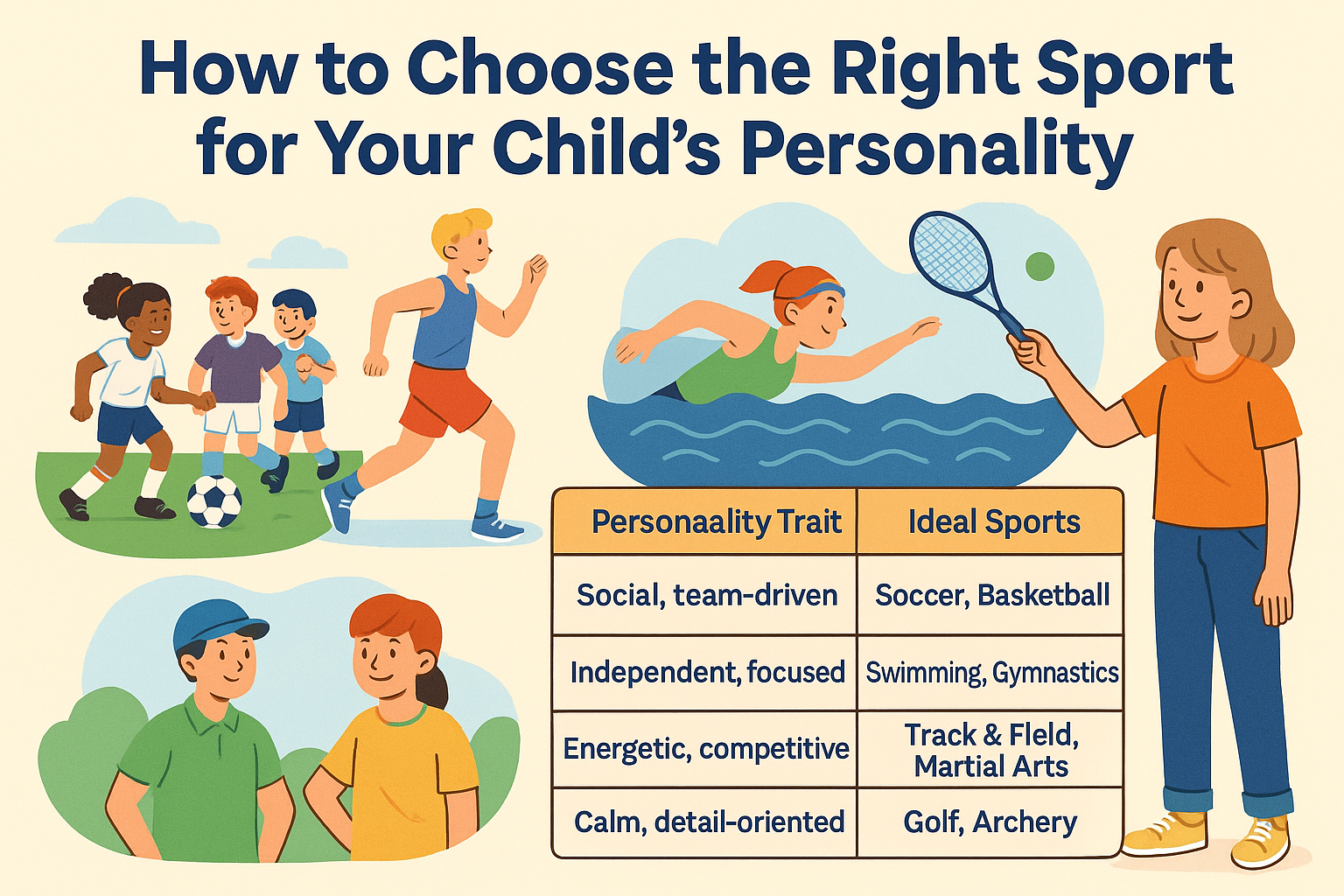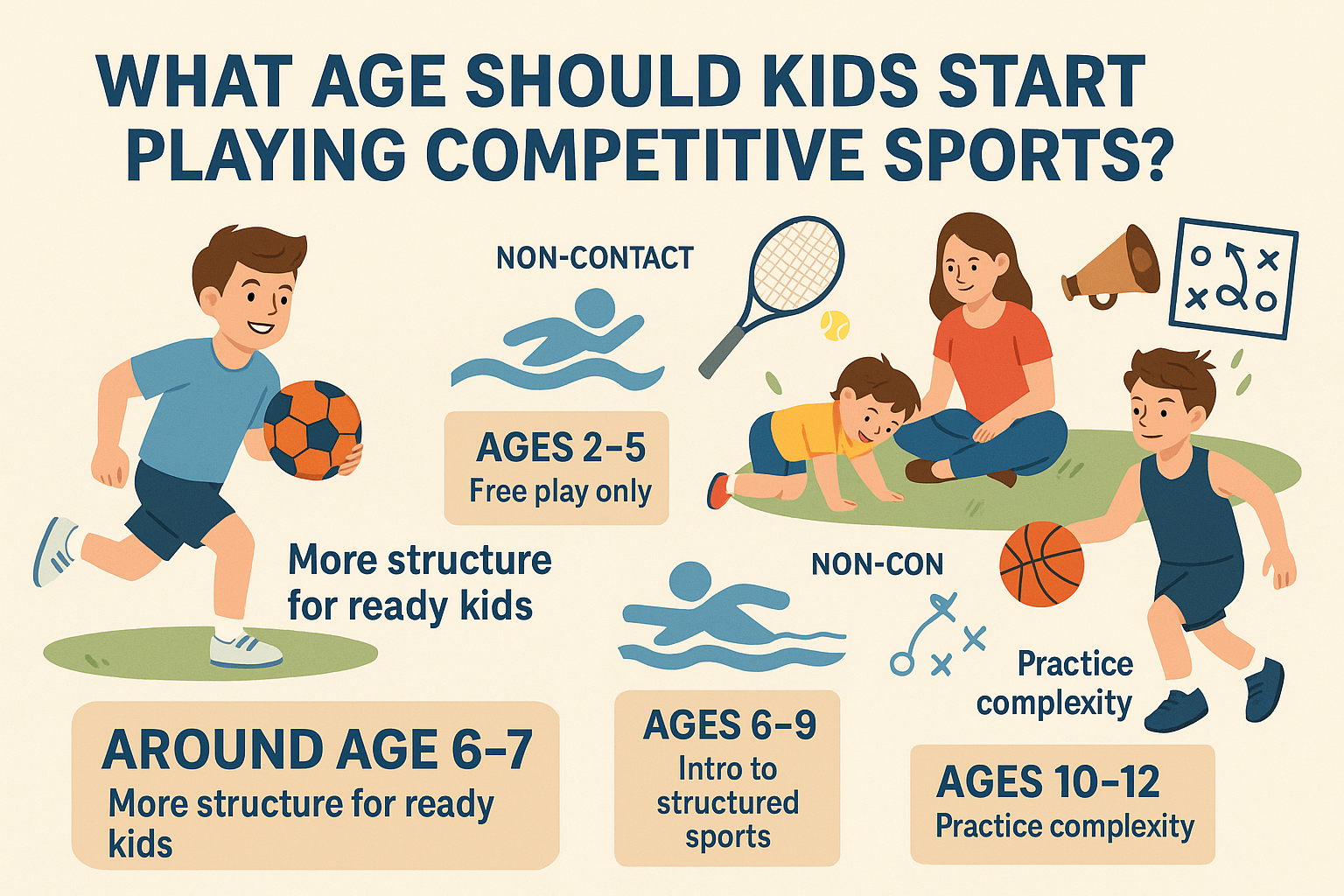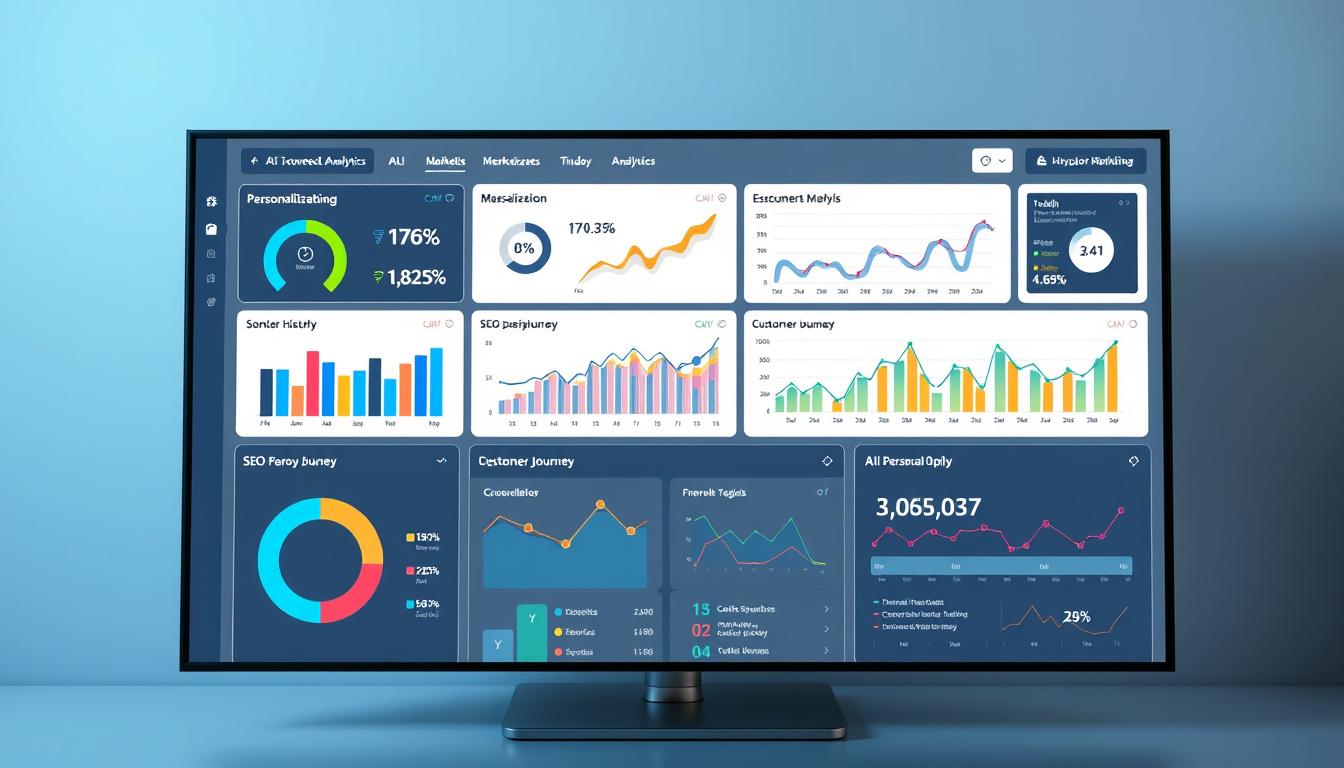Artificial intelligence is changing marketing fast. McKinsey says AI could add $4.4 trillion to the global economy each year. AI helps with content, analytics, and customer interactions, making it essential today.
Marketing pros use AI to understand customers better. They create personalized experiences and make decisions based on data. This guide will show you how AI changes marketing, focusing on personalization, SEO, and analytics.
AI marketing dashboards combine personalization, SEO, and analytics for deep insights
What is AI in Marketing?
AI marketing uses technologies like machine learning and data analytics. It helps marketers make better decisions and deliver personalized content. This makes marketing more effective and customer experiences better.
Studies show 72% of businesses use AI now, with marketing leading the way. AI can handle huge amounts of data, giving insights humans can’t find on their own.
The AI in Marketing workflow: from data collection to implementation
Get Started with AI Marketing
Get our free AI Marketing Starter Kit to start using AI in your strategy today.
AI-Driven Personalization: Creating Tailored Customer Experiences
Personalization is now key in marketing. AI makes it possible to analyze data and offer unique experiences to each customer.
Dynamic Content Generation
AI can create personalized content based on user behavior and preferences. It’s not just about using a customer’s name in emails. AI can customize entire web pages and product recommendations for each user.
AI personalization adapts content dynamically based on user behavior and preferences
AI-Powered Chatbots and Virtual Assistants
Today’s chatbots understand and respond to customer queries using natural language processing. They can handle complex conversations and learn from interactions, improving their responses over time.
Sephora uses an AI chatbot to help customers find products. It considers their preferences and previous purchases. This improves customer experience and boosts conversion rates.
Personalized Email Marketing Campaigns
AI optimizes email marketing by analyzing data for better send times and content. Machine learning predicts which products customers are likely to be interested in, increasing open rates and conversions.
Benefits of AI Personalization
- Increased customer engagement and satisfaction
- Higher conversion rates and average order values
- Improved customer retention and loyalty
- More efficient marketing spend
- Better understanding of customer preferences
Implementation Challenges
- Data quality and integration issues
- Privacy concerns and regulatory compliance
- Balancing automation with human touch
- Technical implementation complexity
- Measuring personalization ROI accurately
“The future of marketing is hyper-personalization. AI doesn’t just help us target the right customers—it helps us understand exactly what they need, sometimes before they know it themselves.”
— Marketing Director at Netflix
AI for SEO: Revolutionizing Search Engine Optimization
AI is changing SEO. It helps with keyword research, content optimization, and technical SEO. AI tools improve rankings and drive more organic traffic.
AI-Powered Keyword Research and Content Optimization
Traditional keyword research is based on manual analysis. AI tools go beyond that. They find semantic relationships and predict which topics will attract more traffic.
AI SEO tools offer detailed keyword analysis and content optimization tips
AI tools analyze top pages and suggest ways to improve your content. They look at semantic relevance, content depth, and readability. This helps create content that meets search intent.
Predictive SEO and SERP Analysis
AI algorithms predict trends and seasonal changes in search behavior. This lets marketers prepare content early and grab opportunities before others do.
Advanced SERP tools use machine learning to spot patterns in search results. They figure out what matters most for ranking in specific niches. This helps marketers focus on the most important SEO efforts.
Technical SEO Automation
AI tools find technical SEO issues like broken links and slow page speed. Some tools fix problems automatically or guide you through complex fixes.
4.5
Overall Impact of AI on SEO
Keyword Research Efficiency
4.5/5
Content Optimization
4.8/5
Technical SEO Improvement
4.4/5
SERP Analysis Accuracy
4.3/5
ROI from AI SEO Tools
4.2/5
AI-Powered Analytics: Transforming Marketing Measurement
Analytics is key for marketing success, and AI is elevating it. AI analytics tools process huge amounts of data, find patterns humans might miss, and offer insights in real-time.
Real-Time ROI Tracking and Attribution
AI analytics platforms track marketing performance in real-time. They provide immediate insights into campaign success. Advanced attribution models, powered by machine learning, understand the true impact of each touchpoint in the customer journey.
AI analytics dashboards give a full view of marketing performance and ROI
Customer Journey Mapping and Predictive Analytics
AI analyzes customer interactions to create detailed journey maps. It identifies pain points and opportunities for improvement. Predictive analytics forecast future customer behavior, helping marketers anticipate needs and optimize campaigns.
For example, an e-commerce company might use AI to predict which customers are likely to churn. It can then trigger personalized retention campaigns before they leave. Predictive analytics can also identify which leads are most likely to convert, helping sales teams focus their efforts.
Sentiment Analysis and Voice of Customer
AI-powered sentiment analysis tools monitor social media and reviews to gauge brand perception. They identify emerging issues. Natural language processing algorithms categorize feedback by topic and sentiment, giving a full view of customer opinions.
Traditional vs. AI-driven analytics: key differences in capabilities and outcomes
| AI Analytics Capability | Marketing Benefit | Implementation Complexity | Typical ROI Timeframe |
| Predictive Customer Behavior | Anticipate needs and optimize targeting | Medium-High | 3-6 months |
| Multi-touch Attribution | Accurate channel performance measurement | High | 6-12 months |
| Sentiment Analysis | Real-time brand perception insights | Low-Medium | 1-3 months |
| Anomaly Detection | Early identification of issues/opportunities | Medium | 2-4 months |
| Customer Lifetime Value Prediction | Optimized acquisition and retention spend | High | 6-12 months |
Practical AI in Marketing Use Cases
AI is changing many parts of marketing, not just personalization, SEO, and analytics. Here are some ways AI is making a difference:
Programmatic Advertising
AI makes buying, placing, and optimizing digital ads easier. It uses machine learning to find the best times to show ads. This way, ads reach the right people at the right time, improving ROI.
Content Creation
AI can write blog posts, social media, and more. It’s great for routine tasks but can’t replace human creativity. AI also offers suggestions to improve content based on data.
Customer Segmentation
AI finds patterns in customer data to create detailed segments. This helps in making marketing campaigns more targeted. It also leads to better customer experiences.
Social Media Management
AI tools track social media trends and post schedules. They even suggest content ideas based on what’s popular. They also watch for mentions of your brand and how people feel about it.
Voice Search Optimization
As voice search grows, AI helps make content for it. It looks at how people speak versus type. This helps in making content that matches how people search.
Predictive Lead Scoring
AI scores leads based on how likely they are to buy. This helps sales teams focus on the right leads. Marketing teams can also improve their targeting.
Implementing AI in Your Marketing Strategy: A Step-by-Step Approach
Adding AI to your marketing doesn’t have to be hard. Here’s how to start:
A step-by-step guide to using AI in marketing
- Look at what you’re doing now and what’s hard. See where AI can help, like better customer groups, smarter ad spending, or easier content making.
- Start with proven AI tools. Pick AI solutions that really work for your needs. Don’t try to do everything at once.
- Make sure your data is good and works with AI. AI needs good data to work well. Check your data, clean it up, and make sure it works with other systems.
- Train your team on AI. Help your marketing team learn about AI. They need to know how to use it and understand what it tells them.
- Know how you’ll measure success. Decide how you’ll know if AI is working. This could be better sales, more engagement, or being more efficient.
- Keep testing and improving. AI should always be getting better. Check how it’s doing and make changes as needed.
Ready to Implement AI in Your Marketing Strategy?
Get our detailed AI Marketing Implementation Guide. It has templates, checklists, and step-by-step guides to help you use AI in your marketing.
Get Your Free Implementation Guide
Best Practices for AI in Marketing
To get the most from AI in marketing, follow these tips:
Key tips for using AI in marketing well
Do’s
- Balance AI with human touch and oversight
- Keep customer data private and open
- Know what you want to achieve before choosing AI tools
- Train your team to work with AI
- Check AI outputs for quality and fairness
- Use AI insights across all marketing channels
Don’ts
- Don’t rely only on AI without human check
- Don’t ignore data quality before starting
- Don’t use AI tools in isolation
- Don’t expect results right away without tweaking
- Don’t overlook ethical and bias issues
- Don’t forget to measure AI’s impact
“The best AI marketing uses don’t replace humans. They help them do more and focus on strategy and creativity.”
— Marketing AI Institute
Future Trends in AI Marketing
The field of AI in marketing is growing fast. Here are some trends to watch:
Emerging trends shaping the future of AI in marketing
Hyper-Personalization
AI will make personalization even better. It will tailor content and offers to each customer in real-time. This will happen across all touchpoints.
Predictive Customer Journeys
Advanced AI will predict what customers might buy next. It will also predict their entire journey. This lets marketers meet customer needs before they even ask.
AI-Generated Creative
As AI gets better, we’ll see more AI-created marketing assets. This includes copy, images, video, and interactive experiences. These will work alongside human creativity.
Voice and Visual Search
AI will change how we search. Voice and image-based queries will need new strategies from marketers.
Ethical AI Marketing
As AI becomes more common, ethics will matter more. Transparency, bias, and privacy will be key for keeping customer trust.
Augmented Reality Experiences
AI-powered AR will create new marketing experiences. These will blend digital and physical worlds. They’ll be big in retail, real estate, and entertainment.
Conclusion: Embracing the AI Marketing Revolution
AI in marketing is changing how we do campaigns. It’s also changing how we understand and connect with customers. AI helps marketers work smarter, not harder.
Marketers who thrive will see AI as a tool, not a replacement. They’ll use AI to boost creativity, strategy, and emotional intelligence. By focusing on clear goals, quality data, and an iterative approach, marketers can get the most out of AI.
Staying up-to-date with AI trends and best practices is key. The future belongs to marketers who mix human creativity with AI insights.
Successful AI marketing balances tech with human touch and strategy
Transform Your Marketing with AI Today
Get our AI Marketing Toolkit. It has templates, guides, and case studies for personalization, SEO, and analytics.
Download the Complete AI Marketing Toolkit
Frequently Asked Questions About AI in Marketing
Is AI replacing marketers?
No, AI is not replacing marketers. AI is great at data analysis and automation but can’t replace human creativity and strategy. The best teams use AI for data tasks and focus on creativity and relationships.
How much does it cost to implement AI in marketing?
The cost of AI in marketing varies. It depends on your needs and approach. AI tools have monthly fees from 0 to ,000+. Custom solutions cost more. Start with targeted implementations and expand as you see ROI.
What skills do marketers need to work effectively with AI?
Marketers don’t need to be data scientists but should understand AI basics. They need data literacy, critical thinking, and knowledge of AI ethics. Most importantly, they should know how to ask the right questions and use AI insights wisely.
How do I ensure my AI marketing is ethical and compliant?
Ethical AI marketing means being transparent about data use and following laws like GDPR and CCPA. Regularly check your AI for bias and fairness. Always have human oversight of AI content and decisions. Prioritize customer privacy and give users control over their data.














